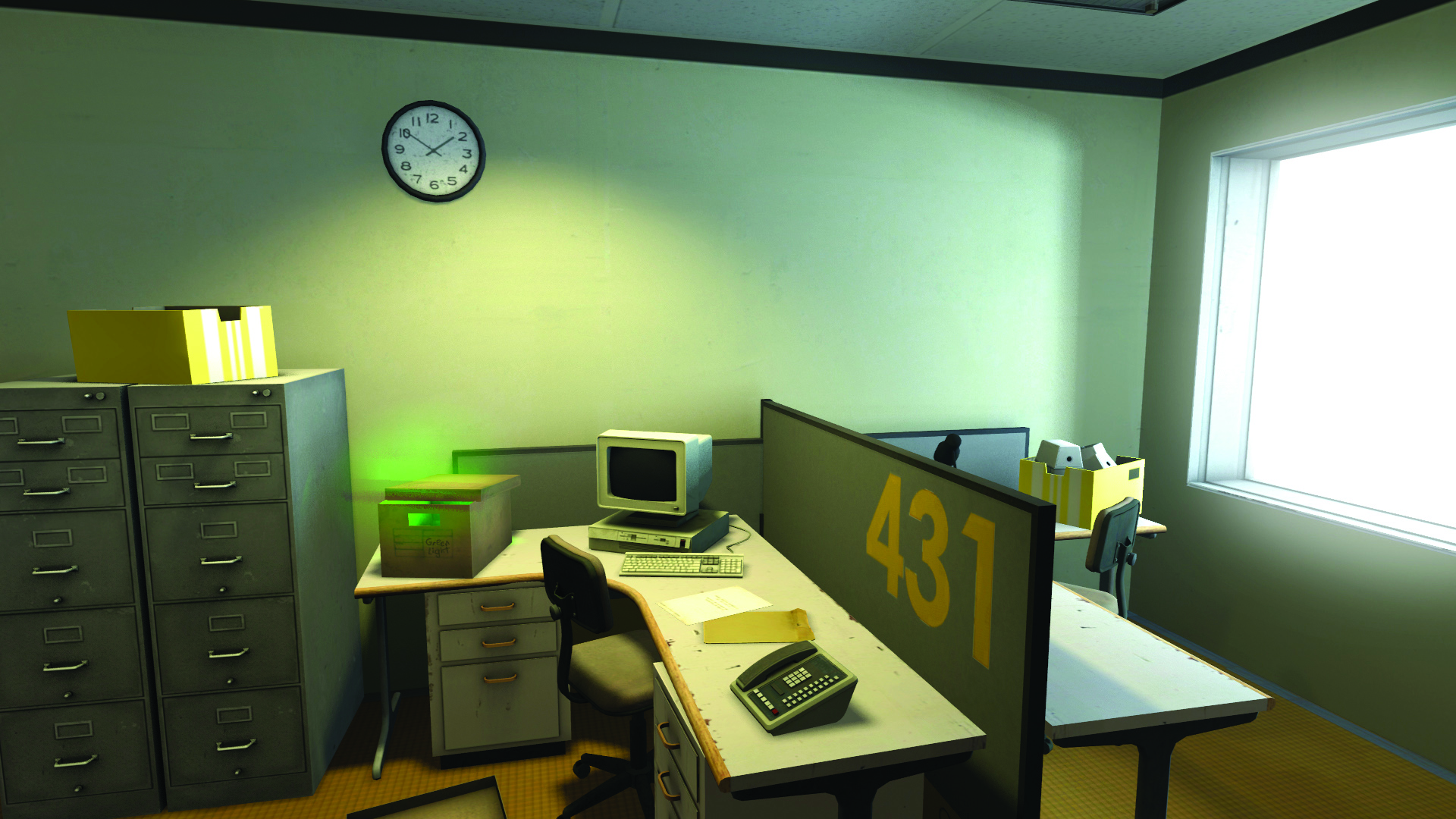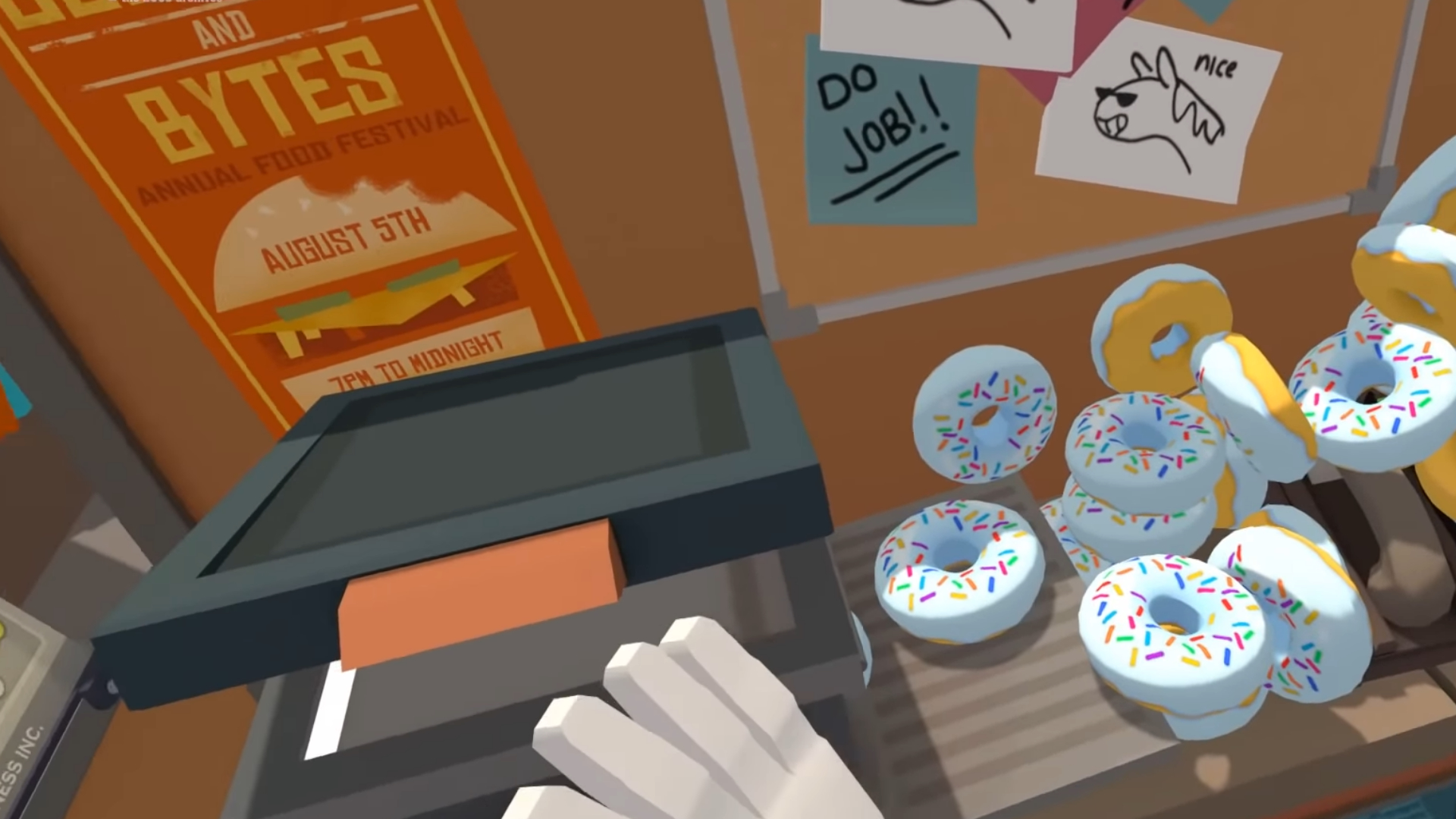Why does it feel so good to toss things around in games?
What makes yeeting random objects and twiddling your little Batnips such a thrill?

We all remember our first tango with the world behind a VR headset. "Right," your malice rises as you titter under your breath, "what can I throw, and how well does it smash?"
It's almost a certainty that players, given an ounce of freedom, will push the boundaries of what's right and wrong. When the realisation hits that your actions won't have any real-world consequences, many will take things to their limits, and skirt the periphery of human ethics—Rimworld's human skin hat makers, I'm looking at you.
At the less extreme end of that spectrum, every person I've ever watched play VR has immediately started flinging items around, the second they're given any level of agency. And the utter glee in their actions is startling. People just seem to love the reckless tossing of objects. Heck, there's an entire game dedicated to the phenomenon, called… wait for it: Throw Anything.
But what is it that drives this destructive urge? Why do we get so much satisfaction from yeeting stuff in games?
Throwing things around is one of life's greatest simple pleasures. A game of catch, javelin or shotput is good for you, after all. Throwing can be a great workout, it trains reflexes, and improves hand-eye coordination… and the novelty of doing so in a fantasy world makes it all the more appealing.
In certain situations, a good toss can be a way to relieve pent up anger (stop giggling), or a way to prove or improve the strength of your arm (seriously, you're such a child). But for many, what I think it comes down to is a simple show of defiance.
My old Pathfinder/Stars Without Number homebrew GM gave me a tip for designing TTRPG campaigns: "Think of the most ridiculous thing your players could possibly do, then multiply it by 100. That's what they'll do." Wise words that were often echoed by other game designers I've crossed paths with. Usually punctuated by the phrase "So don't bother planning too much."
The biggest gaming news, reviews and hardware deals
Keep up to date with the most important stories and the best deals, as picked by the PC Gamer team.
In designing video games, though, you have to plan for every possible interaction. Until we have extremely powerful AI designing games as they're being played, game designers have to be prepared for anything their players might want to explore within the safety of what we, in game design, call 'the magic circle.'

The Stanley Parable is a great example of a game that makes affordances for, and actively encourages this defiant urge. Have you ever met a person who didn't throw themselves off the cargo elevator, or go against the narrator's instructions at least once? No. Challenge a player's freewill, show them a sign that says 'don't,' and it's like a little switch goes off in the back of their heads—a Dexter's Lab, DeeDee-esque "Ooh, what does this button do?"
Of course they'll try photocopying the doughnuts in Job Simulator, yes they'll blow up lampshades with grenades in Half Life: Alyx, and you can bet when they see the mirror in Batman: Arkham VR they're gonna twiddle their little Batnipples (don't pretend you didn't).

What drives a player to throw things around, or just generally break the rules in games seems to come down to a combination of things: The childlike curiosity games manage to bring out in people, coupled with the absence of real-world repercussions. That's all then reinforced by the neat little dopamine hit you get when you realise the narrator's now pissed off at you, or the catharsis that comes from witnessing the gorgeous smash physics and animations the game artists have created for each object.
Someone once told me that people play games in order to feel like their actions matter. And sure, smashing cups and twiddling your Batnips might not seem to serve much of an existential purpose, but all this contributes to a player's sense of influence, power, and independence. All of which are important for nurturing a healthy mental state.
So, whether you believe tossing things around to be a profound or arbitrary pastime, it's something gamers will always be drawn to. Be that either to finally feel like they're having an effect on the world in front of them, or just to make Batman look like a right weirdo.

Screw sports, Katie would rather watch Intel, AMD and Nvidia go at it. Having been obsessed with computers and graphics for three long decades, she took Game Art and Design up to Masters level at uni, and has been rambling about games, tech and science—rather sarcastically—for four years since. She can be found admiring technological advancements, scrambling for scintillating Raspberry Pi projects, preaching cybersecurity awareness, sighing over semiconductors, and gawping at the latest GPU upgrades. Right now she's waiting patiently for her chance to upload her consciousness into the cloud.

